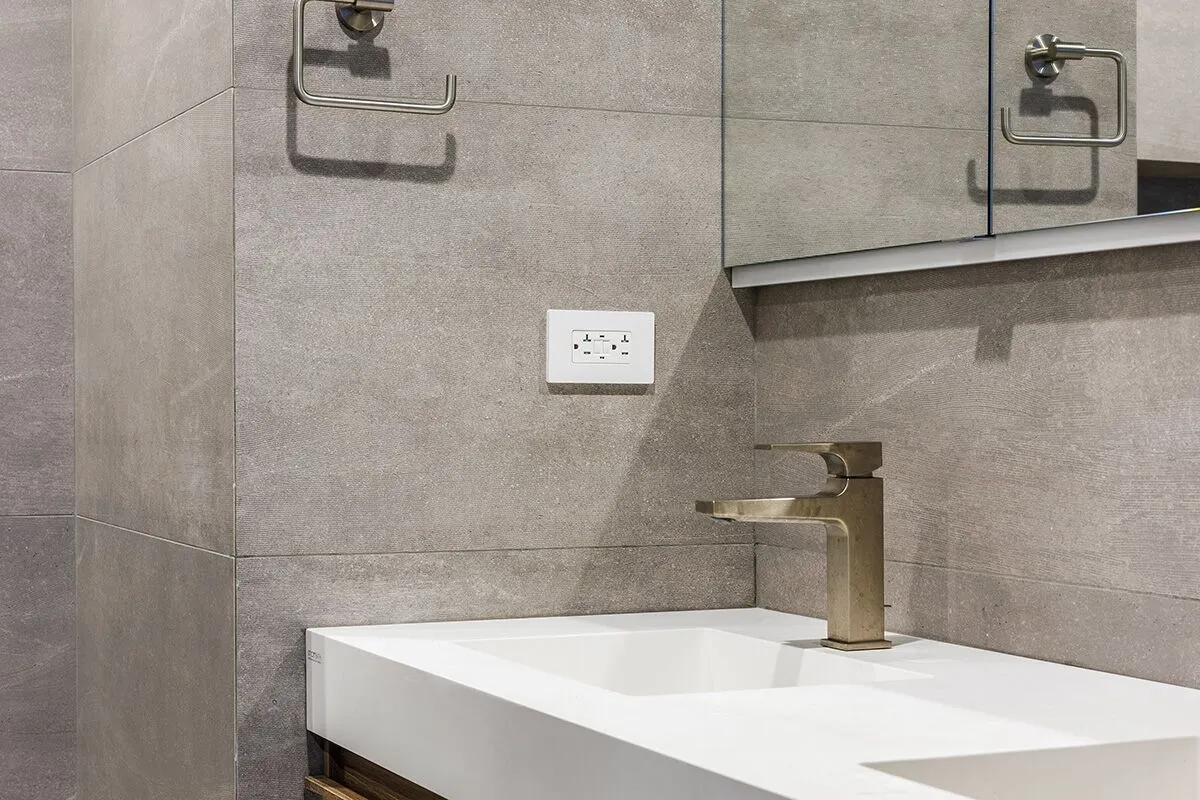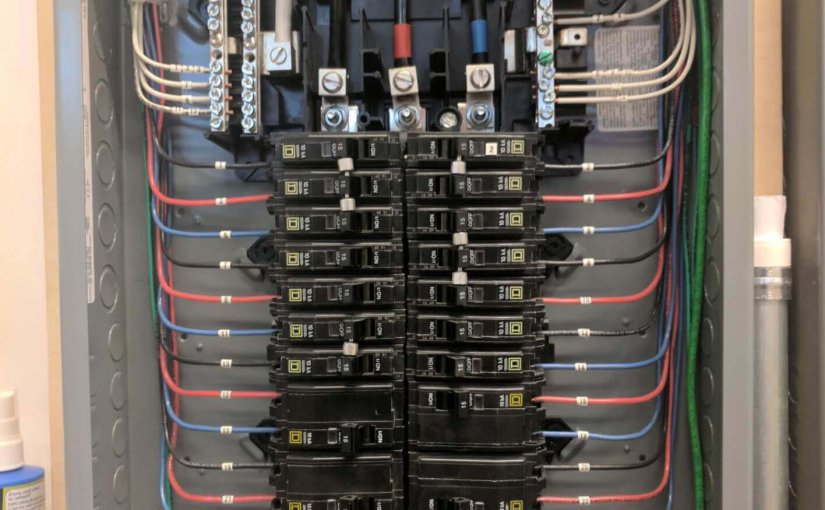Common Electrical Problems
Understanding the most frequent electrical issues in homes and what they might indicate
Circuit Breakers Tripping
What's Happening:
A circuit breaker "trips" (switches to the off position) when there's too much current flowing through the circuit. This is a safety feature designed to prevent electrical fires.
Common Causes:
- Overloaded Circuit: Too many appliances or devices running on the same circuit
- Short Circuit: A hot wire is touching another hot wire or a neutral wire
- Ground Fault: A hot wire is touching a ground wire or grounded part of a box or appliance
- Arc Fault: Loose connections or damaged wires causing sparking
- Faulty Appliance: A malfunctioning device drawing too much power
What To Do:
- Unplug all appliances and devices from the affected circuit
- Reset the breaker completely (push it fully to the OFF position, then back to ON)
- If it trips immediately again, there may be a short circuit or ground fault
- If it stays on, plug in devices one at a time to identify which one is causing the problem
- If a breaker trips frequently, you may need a dedicated circuit or panel upgrade
Partial Power Loss
What's Happening:
Some outlets, lights, or areas of your home have no power, while others function normally. This indicates an issue with specific circuits rather than your entire electrical system.
Common Causes:
- Tripped Circuit Breaker: A breaker has flipped to the off position
- Tripped GFCI Outlet: A GFCI outlet has detected a ground fault and cut power
- Loose Connection: A wire has come loose in an outlet, switch, or junction box
- Utility Issue: Lost phase from the utility company (only one of two service lines working)
- Damaged Wiring: Rodent damage, water damage, or age-related deterioration
What To Do:
- Check your electrical panel for tripped breakers and reset any that are in the middle position
- Look for GFCI outlets with a red button showing and press the RESET button
- If resetting breakers and GFCIs doesn't help, check if neighbors have similar issues (utility problem)
- If the problem is isolated to your home, call an electrician to check for loose connections or damaged wiring
- For persistent issues, you may need electrical panel maintenance or repairs
Flickering Lights
What's Happening:
Lights dim or flicker intermittently or when certain appliances turn on. This indicates potential voltage fluctuations or connection issues in your electrical system.
Common Causes:
- Loose Wiring Connections: At the fixture, switch, or electrical panel
- Overloaded Circuit: High-demand appliances causing voltage drops
- Voltage Fluctuations: From the utility company
- Bulb Issues: Loose bulbs or incompatible dimmer switches
- Aging Electrical System: Wiring or components not handling current demand
What To Do:
- If only one light flickers, check if the bulb is loose or needs replacement
- If lights flicker when high-power appliances run, avoid running multiple power-hungry devices at once
- For whole-house flickering, contact an electrician to check your main electrical panel
- If using LEDs with dimmers, ensure they're compatible with your dimmer type
- Consider a panel upgrade if your home's electrical system is older and not meeting demands
Hot Outlets or Switches
What's Happening:
Electrical outlets, switch plates, or plugs feel unusually warm or hot to the touch. This is a serious warning sign that should never be ignored.
Common Causes:
- Loose Connections: Causes resistance and heat build-up
- Overloaded Circuit: Too much current flowing through the wiring
- Improper Wiring: Incorrect wire gauge or faulty installation
- Damaged Components: Worn out or faulty outlets or switches
- Arcing: Electricity jumping across gaps in connections
What To Do:
- Stop using the hot outlet or switch immediately
- Turn off the corresponding circuit breaker
- Unplug any devices connected to the hot outlet
- Call a licensed electrician for an immediate inspection - this is a fire hazard
- Never ignore hot outlets or switches - they indicate a serious problem
Important Safety Warning
Hot outlets or switches are a serious fire hazard. Never ignore this problem or attempt to fix it yourself. Contact a licensed electrician immediately.
Burning Smell or Sparks
What's Happening:
You notice a distinct burning odor (often described as "electrical" or "fish-like") coming from an outlet, switch, or appliance, or you see sparks when plugging in a device.
Common Causes:
- Electrical Arcing: Electricity jumping across a gap in connections
- Short Circuit: Current following an unintended path
- Overheated Wires: Due to overloaded circuits or loose connections
- Burned Out Components: Failing switches, outlets, or circuit breakers
- Wire Insulation Melting: From excessive heat or age deterioration
What To Do:
- Turn off power to the affected area immediately at the circuit breaker
- If there's smoke or visible fire, evacuate and call 911
- Do not use the affected outlet, switch, or appliance
- Call a licensed electrician for emergency service
- Never attempt to fix burning electrical components yourself
Immediate Action Required
Burning smells or sparks indicate an imminent fire hazard. Turn off power, evacuate if necessary, and call for professional help immediately.
Unexplained High Electricity Bills
What's Happening:
Your electricity bills are significantly higher than usual without a clear explanation like seasonal changes or new appliances.
Common Causes:
- Faulty Appliances: Malfunctioning devices drawing excessive power
- Phantom Power Usage: Devices using power even when "off"
- Electrical Leakage: Current leaking to ground due to damaged wiring
- HVAC System Issues: Inefficient heating or cooling systems
- Hidden Short Circuits: Undetected electrical problems
What To Do:
- Check for appliances running continuously or inefficiently
- Use power strips to completely turn off electronics when not in use
- Consider an electrical safety inspection to identify hidden issues
- Monitor your electric meter with appliances on and off to identify power drains
- Schedule a professional energy audit to identify efficiency improvements
When to Call a Professional Electrician
Electrical work can be dangerous. Here are situations that always require professional attention
- Circuit breakers trip repeatedly - This indicates an underlying issue that needs professional diagnosis
- Outlets or switches feel warm/hot - This is a fire hazard requiring immediate attention
- Burning smells or sparks - These are signs of immediate danger that should never be ignored
- Buzzing or crackling sounds - These indicate arcing electricity that can cause fires
- Water near electrical systems - Water and electricity create dangerous shock hazards
- Signs of rodent damage - Pests can chew through wire insulation, creating fire hazards
- Aluminum wiring - Homes with aluminum wiring need special attention from qualified electricians
- Persistent issues with no clear cause - If troubleshooting doesn't resolve the problem, call a professional
Our Professional Troubleshooting Process
When you call AJ Long Electric for troubleshooting, our expert electricians:
- Conduct a thorough diagnostic assessment to identify the root cause
- Use specialized testing equipment to locate hidden issues
- Provide a detailed explanation of the problem and solution options
- Deliver transparent, upfront pricing before any work begins
- Make repairs using high-quality parts and professional techniques
- Perform comprehensive testing to ensure the problem is fully resolved
Licensed, Bonded & Insured | 5-Year Warranty on All Work
Preventative Maintenance
Simple steps to keep your electrical system safe and prevent common problems
Regular Inspections
Schedule professional electrical inspections every 5-10 years, more frequently for older homes. Regular checks can catch problems before they become dangerous or expensive.
- Identify outdated or unsafe components
- Check for code compliance
- Evaluate system capacity
- Detect early warning signs of issues
Proper Usage Habits
Use your electrical system wisely to prevent overloads and reduce safety risks.
- Avoid overloading circuits with too many devices
- Use surge protectors for electronics
- Never use extension cords as permanent wiring
- Unplug rarely used appliances
- Don't run cords under carpets or furniture
- Use correct wattage bulbs in fixtures
Regular Maintenance
Simple maintenance can extend the life of your electrical system and prevent common issues.
- Test GFCI outlets monthly using test/reset buttons
- Keep electrical panel accessible and clean
- Check for loose outlet plugs that wiggle
- Replace damaged cords promptly
- Keep moisture away from electrical components
- Label circuit breakers accurately

Electrical Safety Inspection
Our comprehensive electrical safety inspection provides peace of mind and proactive protection for your home. Our licensed electricians will thoroughly examine your electrical system for potential hazards and provide a detailed report with recommendations.
Our safety inspection includes:
Need Help With an Electrical Problem?
Don't risk your safety with DIY electrical fixes. Our licensed electricians provide expert troubleshooting and repairs with transparent pricing and a 5-year warranty.
Licensed, Bonded & Insured | 5-Year Warranty on All Repairs
